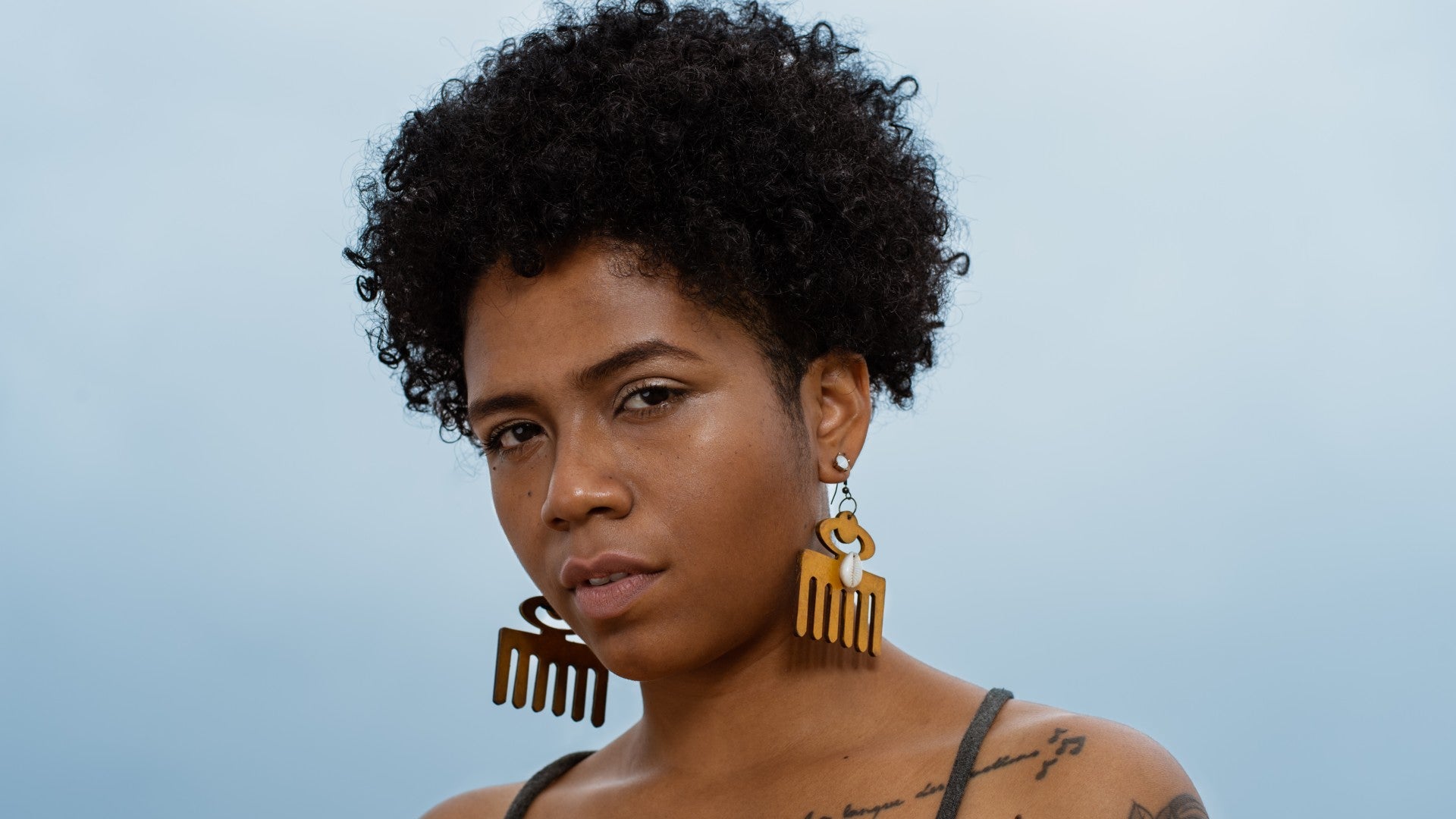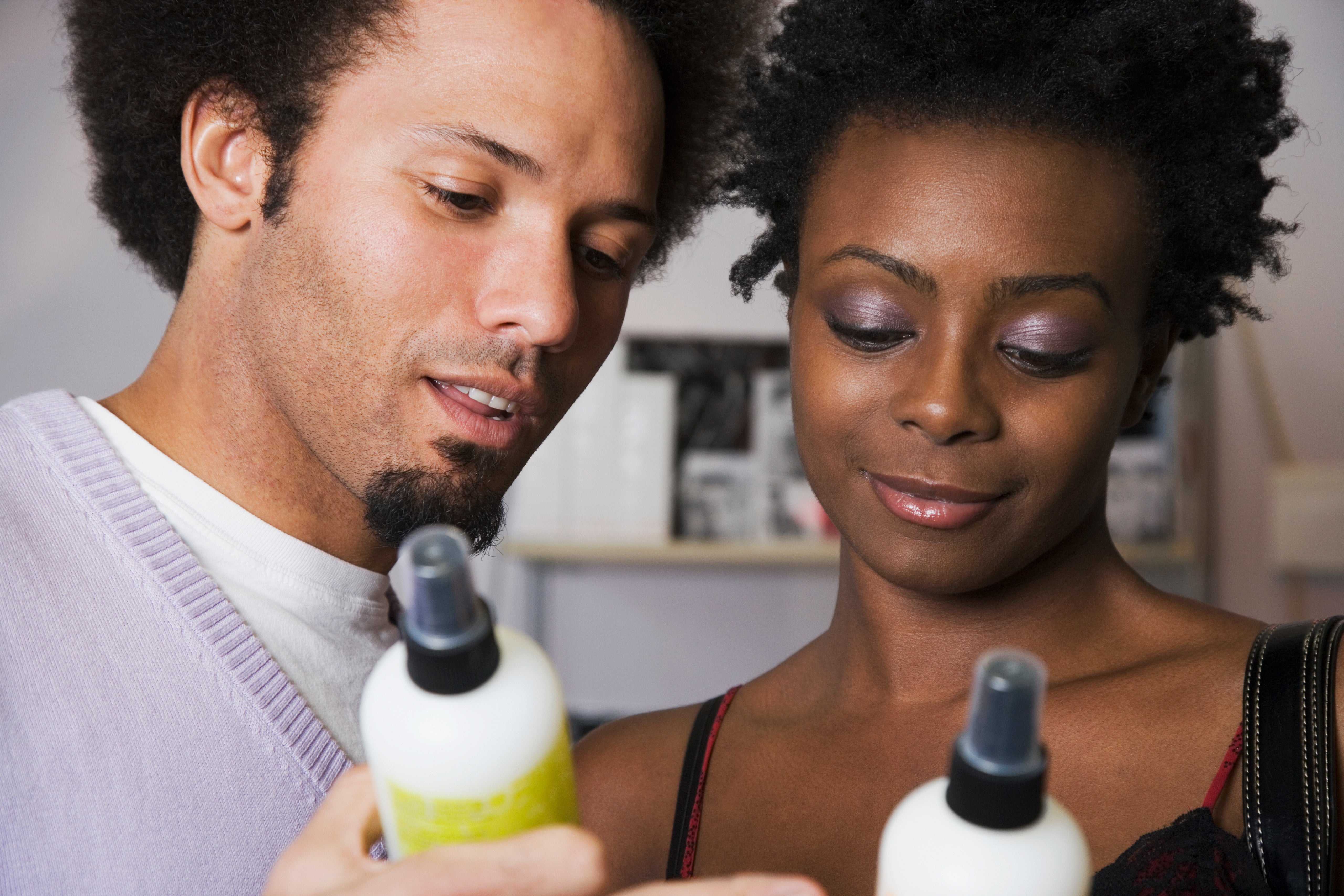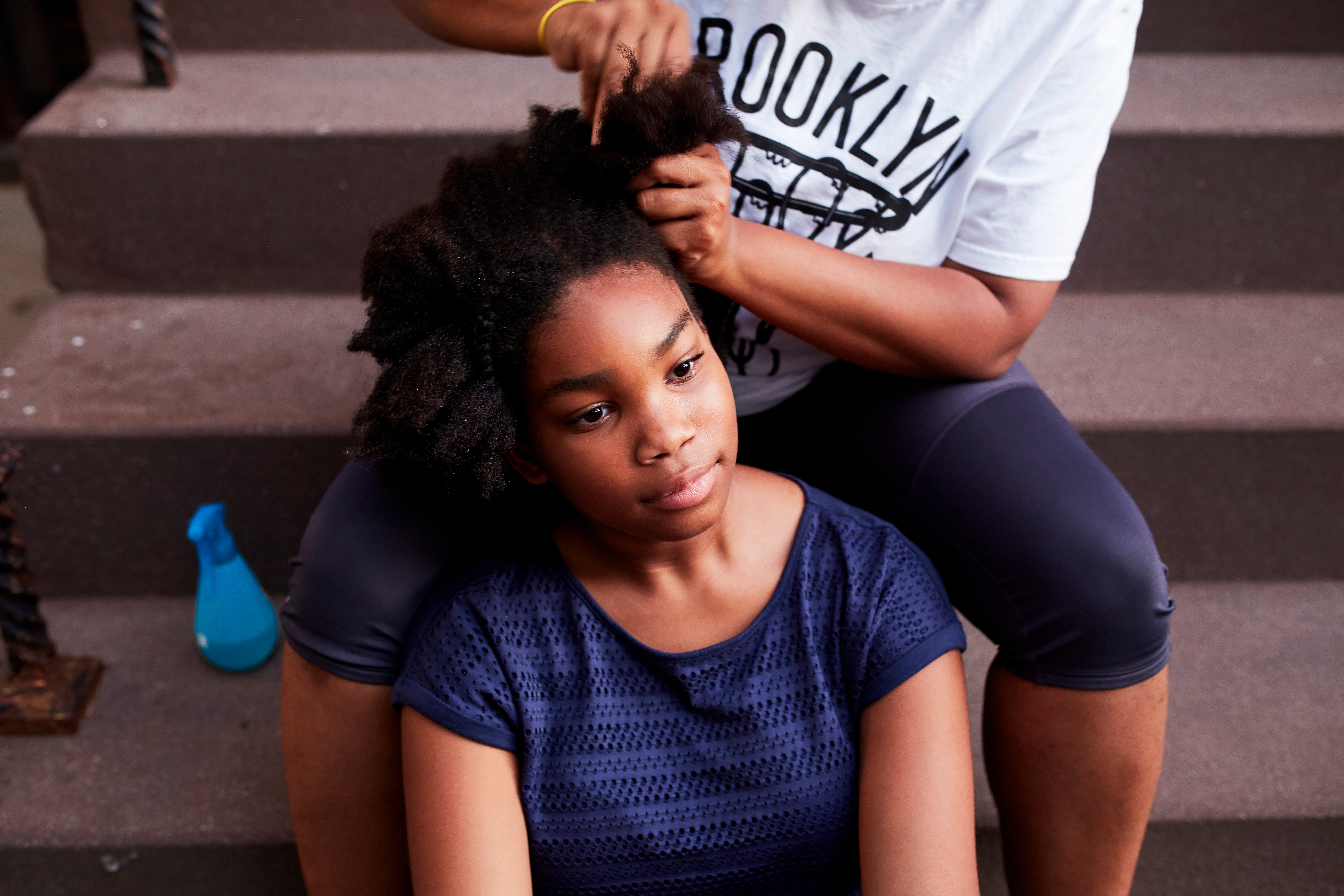
In a recent conversation about Black hair I felt the need to correct a friend to encourage her to say that she’s going back to natural, not just going natural. As unpopular as it is to correct people, I feel a personal responsibility around the language we use about our hair, especially as it pertains to natural hair journeys, which started from birth. And my friend felt the need to enlighten me that no matter how we shaped the conversation around it, her natural hair journey was costing a small fortune.
My recommendations and suggestions gave her no reprieve, as she pointed out that being natural is very different for me as a beauty editor. It’s a point not lost on me for sure. But I wasn’t always in this position. So I began to think back on my trial and error hair experiments and it brought up an issue that I hadn’t considered in a long time: Does it cost more to be natural?
Apparently, it’s complicated.
“Black women are spending about $53 million out of $63 million every year for hair care preparations,” said Cheryl Grace, Senior Vice President of Community Alliance and Community Engagement at Nielsen, on an episode of BET’s digital series The Glam Gap. “We’re serious about our hair. It shows up in how we spend our money and how we spend our time.”
The series, which debuted in September, pulls back the curtain on the beauty industry and its complex relationship with the Black community. In documentary style format, it explores different topics about our beauty, including exclusivity, representation, and Black hair, and features a variety of experts in the industry. This particular episode came up in my search about the cost of having natural hair.
“I’d say I’ve spent about $20K in a lifetime on hair care products,” said influencer and media personality Scottie Beam. “I spent $330 on these braids because they’re so long and they took about 24 hours to do.”
In the same episode singer and songwriter Katrina Bello approximated that she spends about $50 a month on hair care. That was a modest figure compared to most. Some guests said just on a given day they could be wearing $50 worth of hair care products. Celebrity hair stylist Ty Allure’s number came in around $40K yearly.
“Good hair products cost money honestly. It probably would cost more for me to have damaged hair and to try to continue to fix that and hide that than to spend money on quality products that work.” Brianna Agyemang, Senior Director of Marketing at Atlantic Records rationalized.
Trial and error is an expensive method to finding your magic regimen. Black women often have to go through several products before nailing what works for their hair. This is how categorizations like 4C, coily, and low porosity became go-tos in hair searches. Giving Black hair labels was supposed to make it easier for women to find products that were right for their texture and hair type.
But with the nuances of our hair, and the over-saturation of products on the market, it can become quite the complex journey. And according to women in the discussion, natural doesn’t necessarily mean cheaper, as it’s still a trial and error process for products. And those products can also cost some serious coins.

“I do not feel like I’m saving money by any means by being natural. I actually find it to be very expensive,” said Bello. “The good quality products are well over $12 on the low end. And if it’s something that I really would want or could benefit my hair routine it’s like $20 or $40.”
But does our willingness to pay for it keep the price point high?
We’re groomed about the importance of our hair from a young age. And Black women have expressed themselves and their creativity through features like their hair, nails, and clothes for centuries. Black mothers take pride in ensuring that their children are sent into the world with their hair looking its best.
Part of the hair grooming process is an expression of love, and it’s passed from mother to daughter, father to son, sister to sister, and beyond. It’s why people in the community feel out of sorts when they see a young Black girl in a major ad campaign with her hair seemingly untouched (translation: unloved) by a stylist’s hands.

So the answer to my question is yes, it does cost more to be natural. But it seems to cost more to care for Black hair in general, regardless of the texture.







“It’s a crown and I want to make sure that everybody sees it. No matter what style I do I think that’s how I represent myself, with my hair,” concluded Scottie Beam. “Braids, colorful braids, big Afro, huge Afro, I want people to know that Black hair should be acceptable no matter what it looks like.”








